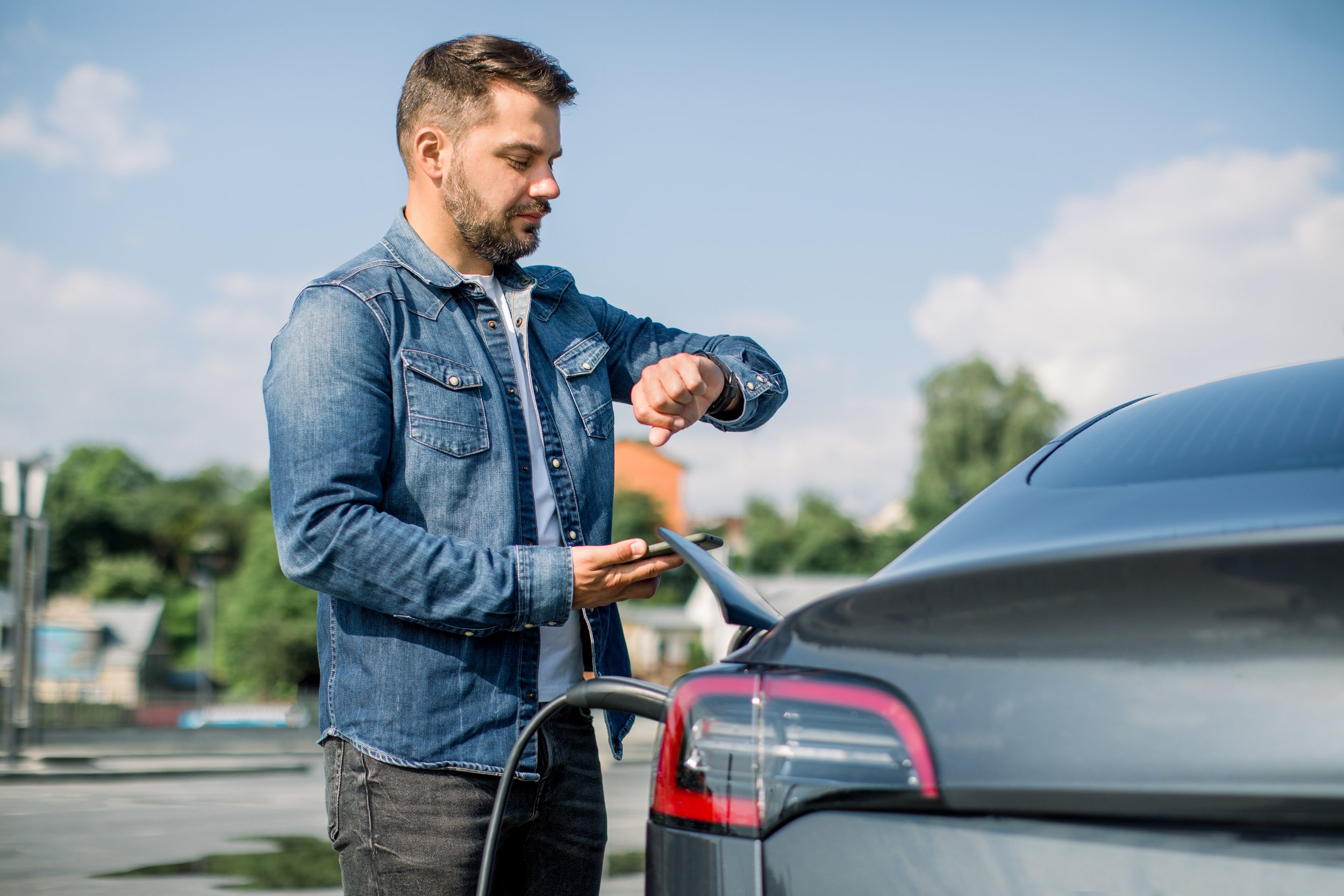How Long Does It Take To Charge an Electric Car?
One roadblock for gas-powered vehicle owners looking to switch to electric vehicles (EVs) is the time it takes to charge an EV. And while drivers who already own EVs actually report that they don’t mind charge-time, it is difficult to convince would-be converts to change their driving and fueling routine. The truth is that charge-time depends on a plethora of factors. Let’s take a look at how long it really takes to charge an electric car and how EV charging can best suit the needs of individual drivers.
How Long Does It Take To Charge an Electric Car?
Every single piece of equipment related to charging an EV impacts how long it will take to charge that vehicle. The charging station and its power output, the vehicle’s charging capability, the size of the battery, the current charge level and more all play some role in determining the duration it takes to top up an EV. With smart EV charging the equation is compounded, as smart charging enables customizing when and for how long the vehicle charges. Dive deeper into the different factors that affect charge-time below:
Charging Station
Depending on the source of power charging an EV, it could take days or mere minutes to significantly charge a battery. EV charging stations are typically categorized as either level 2 or level 3; however, even an outlet at home will charge your EV (albeit rather slowly). You can expect a home outlet (sometimes called a level 1 charger) to take around 40 hours to fully charge a typical EV.
Level 2 chargers decrease time significantly: Most can deliver about 15-25 miles of range per hour, meaning that most EVs can be charged either overnight or during a typical work day. These are a great option to have at work or home.
Level 3 is where speed is really ramped up, and there is a wide range of power output for level 3 chargers. These chargers utilize direct current (DC) power and cost a lot more money than other charging stations, so they are typically implemented in public charging infrastructure. Some level 3 chargers can top up an empty battery in as little as 30 minutes. Many are already designed to output much more power than current EV batteries can receive, so the future looks bright for extremely short charging times.
EV Battery Capacity
Not all EV batteries are created equal. In fact, there is quite a disparity between the potential mile-ranges for different electric cars. Some lower-cost EVs have enough range for most drivers’ daily needs, while other luxury models boast range that rivals or even exceeds many traditional gas-powered vehicles. The one caveat: The larger the battery, the more time it takes to charge. But the good news is that as battery capacity increases, so does the demand to create faster charging solutions. This brings us to another factor in charge-time: charger capacity.
EV Charger Capacity
While the charging station delivers power to the EV, it is actually a charger attached to the EV battery itself that converts power to the battery. A huge battery fitted with a small battery charger (both measured in kWh) would take a long time to charge regardless of the power source at the charging station. This is why luxury EVs with large batteries are typically paired with onboard battery chargers that can quickly receive and convert the power from the power station.
Other Factors
Variables like temperature, time of day and desired charge capacity also determine how long it takes to charge an electric car. Very low (and very high) temperatures can slow the charge time. Additionally, with increased traffic and the subsequent toll on power grids, depending on the time of day it might take longer to top up. Finally, many EV manufacturers recommend keeping your battery in an optimal battery range to maximize life. This means that charging to maximum capacity is not always desired, and often not necessary. This could help shorten charge time if a certain range is not needed.
Charging an EV To Suit Your Needs
All the different factors contributing to EV charge-time bring up the question: What do you need out of your electric car? As previously mentioned, most people who already own an EV do not mind the time it takes to charge; in fact, many even enjoy the new fueling process.
Think about it: Instead of running to the gas station after work, competing with traffic and messing with the dirty pump handles, you can simply plug in your vehicle at home and set it to charge when power costs are lowest. Additionally, you can set your vehicle to charge to what your daily range needs are, meaning you can save money by only getting what you need. Or, if you’re running behind, hook your vehicle up at work and let it charge while you’re busy, leaving it ready to roll home when you’re done.
The final hesitation some drivers have: road trips. Again, if drivers think they will use their EV for longer trips, it makes sense to purchase accordingly. With EV ranges increasing rapidly, and their onboard chargers developing to suit the bigger batteries, charging up on a road trip will take a little more time than it does for a gas-powered vehicle. Even better: You don’t have to sit around and wait at the pump; instead relax, use the restroom and grab a snack while the charging station does the work. And the best part is that charging an EV remains far cheaper than filling a gas tank!
For more resources on EV Charging, reach out to EV Connect.
Sources
Car and Driver - How Long Does It Take To Charge an Electric Vehicle

